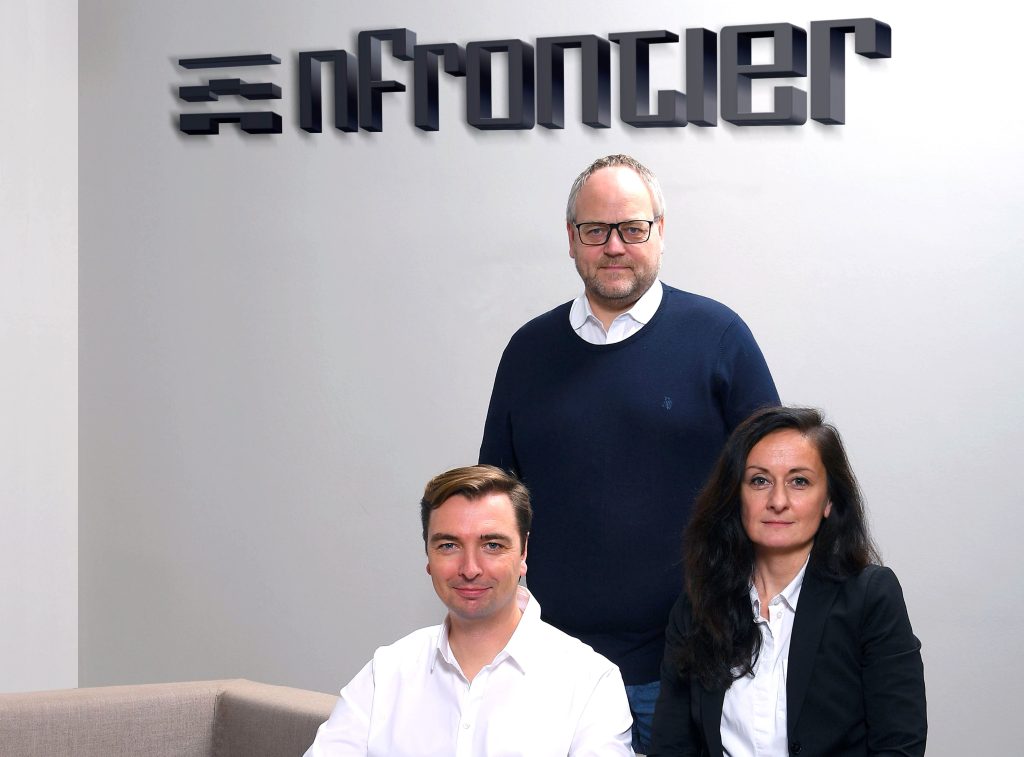Time is running out! Nominate now for the 3D Printing Industry Awards 2023.
Berlin-based design studio nFrontier GmbH demonstrated functional prototypes of its PYLO airbag-equipped bicycle helmet, and UILA electric vehicle (EV) concept at last month’s IAA Mobility motor show in Berlin.
nFrontier has also announced new investments from three “former top managers” within the automotive industry. Franz Linner, Dr Bernd Welzel and Dr Rolf Scheffels will become shareholders and advisory board members at the company, offering technical expertise and access to their broad networks across international automotive markets.
Founded back in 2020 by former BigReb and NOWlab executives Dr Stephan Beyer, Daniel Buening, and Pervin Adiyaman, a key nFrontier goal is to increase the adoption of emerging technologies including industrial 3D printing.
Current nFrontier customers include automotive manufacturers Motherson and BMW, Railroad equipment manufacturer Vossloh, and leading aerospace company Airbus.
“We are very happy about our new advisory board members and shareholders and thank them for their trust. With their considerable network and experience, they will actively drive nFrontier forward on its growth path,” commented Buening, who is nFrontier’s CEO.
“This investment puts us in a position to single-mindedly drive nFrontier forward and take it to the next level. For example, we are specifically planning additional locations in Germany and beyond – wherever our customers are looking for solutions with the help of innovative technologies.”
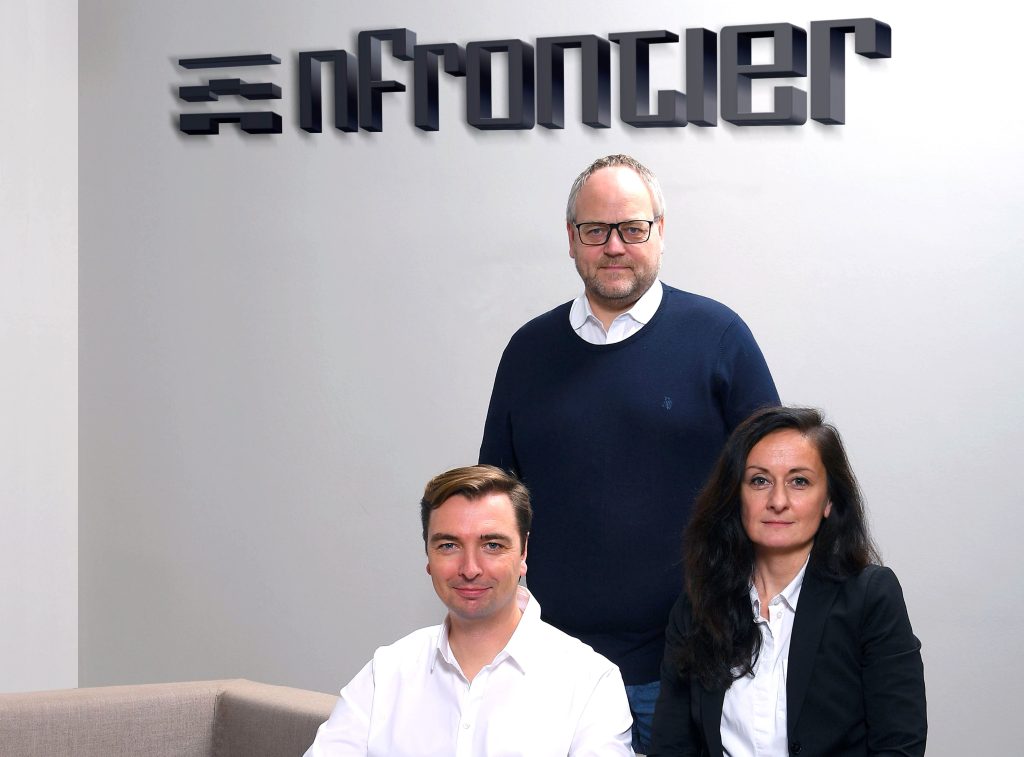
3D printed airbag-equipped bicycle helmet
nFrontier’s PYLO helmet incorporates a 3D printed nylon structure optimized to absorb deep impacts at a higher level than conventional polystyrene helmets. Launched last year, the PYLO helmet includes what is said to be the world’s first face shield airbag designed for a bicycle helmet. During an accident, this airbag automatically blows up, protecting the user’s face.
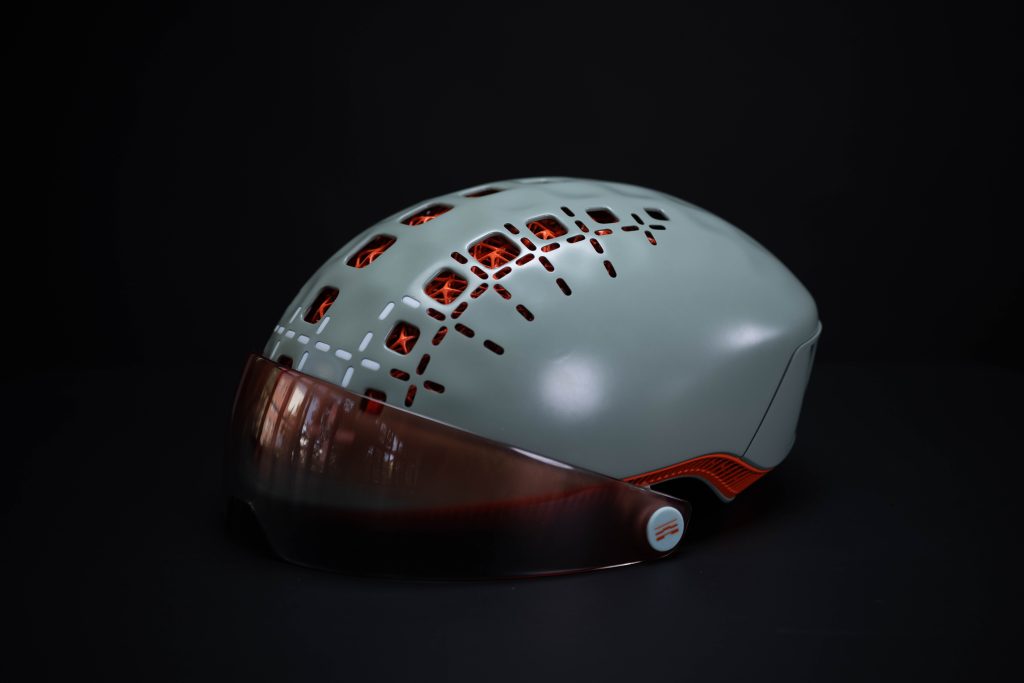
A 360° LIDAR-powered surround safety system is also incorporated into the PYLO helmet, featuring an audio warning system warning the user of dangerous dead-angle situations or vehicles approaching at high speeds. This system operates with 3D immersive sound, offering a free-range 360° scanning zone. The Lidar signals a directional and clear overlay warning sound, indicating the exact location and direction of a threat.
LED head and rear lights and LED indicators are also added to provide additional safety in heavy urban traffic environments. The user can activate these features by double-tapping the left or right side of the helmet, with included gyro sensors automatically detecting the rider’s movements to activate the brake lights.
All of the PYLO’s features can be controlled by a smartphone app, which also enables users to control headlights and connect wireless headphones.
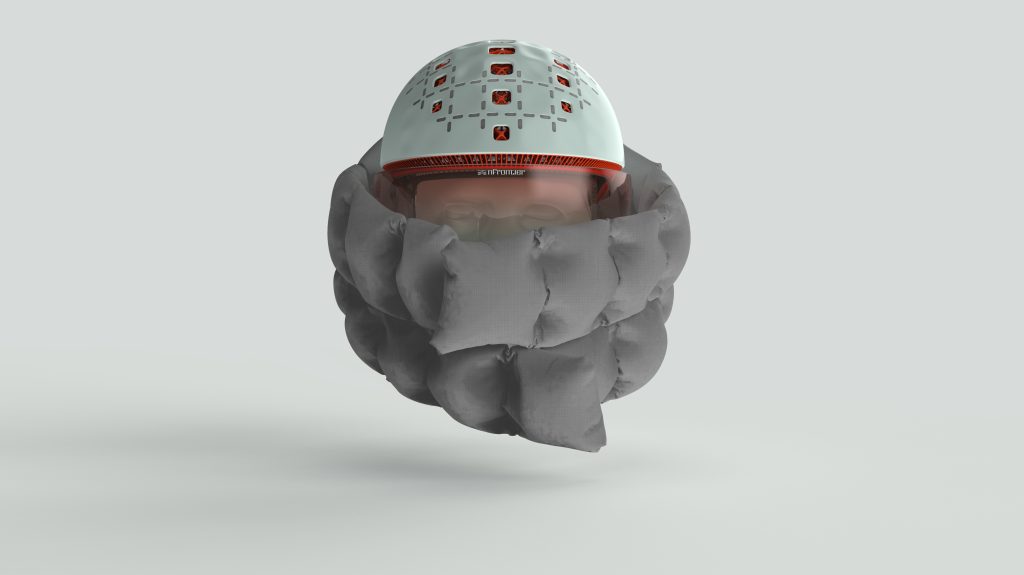
nFrontier’s UILA EV concept
Launched during Formnext 2022, UILA is essentially a cross between a small EV and a cargo bike.
nFrontier leverages 3D printing in the production phase to reduce costs and optimize manufacturing sustainability. This includes 3D printer manufacturer Stratasys’ powder-based Selective Absorption Fusion (SAF) offering and 3D printers from California-based 3D printer provider Origin One. nFrontier claims that this technology allows for local production using fewer components and materials, reducing supply chain challenges and transportation emissions.
The UILA employs a chainless electrical drive train, and can accelerate to a top speed of 25 km/h, and can carry a total payload of 250 kg up to 60-70 km in one charge. The EV is also compact, measuring just 230 cm long and 90 cm high. nFrontier claims that, in the future, the UILA App will enable the user to call the parked EV so that it autonomously drives to them, or even follows them as they walk on foot.
“PYLO and UILA are game-changing mobility solutions for some of today’s most pressing challenges such as more sustainable urban transport modes and traffic safety. At the same time, both deliver a featured set of digital functions and assets by far exceeding current industry standards, turning them into moving digital devices,” explained Dr Beyer, nFrontier’s CFO.
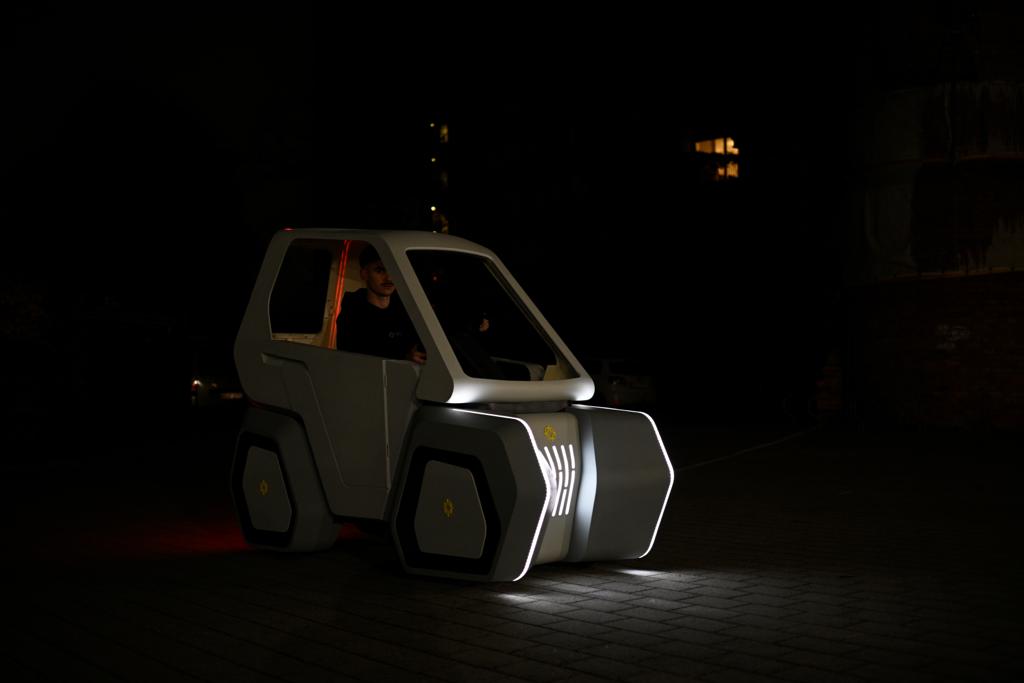
3D printing and the automotive industry
Additive manufacturing is certainly growing with the automotive space. Earlier this year, it was announced that global automotive manufacturer Peugeot has integrated Stratasys’ 3DFashion technology into the interior design of its new Inception concept. The interior is called “revolutionary” by Peugeot, and features advanced materials made with Stratasys J850 TechStyle 3D Printers.
Elsewhere, German car manufacturer Volkswagen Group has acquired a second MetalFAB metal 3D printer from Netherlands-based 3D printer manufacturer Additive Industries. The MetalFAB 3D printer features full-field lasers and automated build changeovers, enabling high-productivity rates and lights-out operations.
Volkswagen has also invested in parameter development, implementing MetalFAB’s Powder Load Tool and Powder Recovery Station to reduce waste and increase manufacturing efficiency.
Subscribe to the 3D Printing Industry newsletter to keep up to date with the latest 3D printing news. You can also follow us on Twitter, like our Facebook page, and subscribe to the 3D Printing Industry Youtube channel to access more exclusive content.
Are you interested in working in the additive manufacturing industry? Visit 3D Printing Jobs to view a selection of available roles and kickstart your career.
Featured image shows a render of the UILA EV. Image via nFrontier GmbH.
